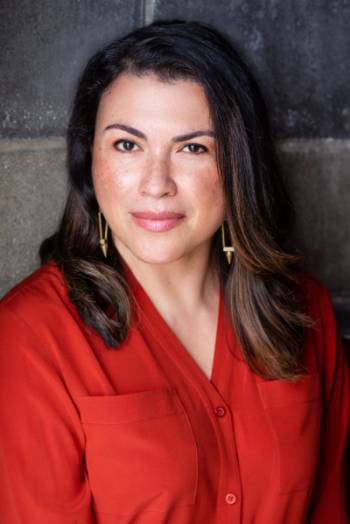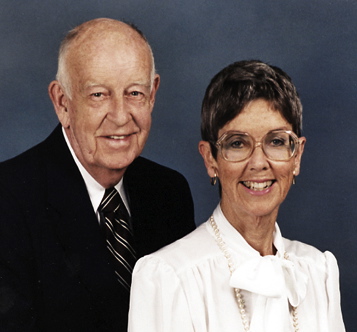Strickland Visiting Scholar Program
Fall 2024 Strickland Distinguished Scholar Lecture Series

Dr. Lina Britto
"The Drug Wars in Colombia: An American History"
October 29, 2024 | 7:00 p.m. - 9:00 p.m. CST | The Event Will Be Streamed on True Blue TV
Check back soon for the link to the stream!
The Drug Wars in Colombia: An American History
Located between two geostrategic regions—the Panama Canal and Venezuela’s oil district—Colombia
has been a key ally in the consolidation of a U.S. hegemonic project in the hemisphere.
However, as historian David Bushnell acknowledged in the early 1990s, it is one of
“the least studied of the major Latin American countries, and probably the least understood”
in U.S. academia. This lecture examines the centrality of this country for the rise
of the United States as a superpower in the Americas during the twentieth century.
It focuses on the drug wars that have been fought in the South American country, from
the late 1970s until Plan Colombia at the turn of the millennium, to demonstrate how
conjunctures in which drug producers and traffickers violently clashed with the power
of the U.S. and Colombian states and their anti-narcotics apparatuses work as magnifying
lenses to the progression of a key historical transition. Namely, when the developmentalist
model of U.S. aid in Latin America that prevailed since the Good Neighbor policy in
the 1930s gradually yielded to a new paradigm of interstate cooperation that unfolded
in a global context of revived militarism and Cold War containment. The lecture argues
that elevating the drug wars to the forefront of U.S.-Colombian relations and enacting
state policies to carry out its agenda contributed to the reinstatement of U.S. hegemony
in Latin America and the Caribbean at different critical moments. It established novel
patterns of cross-pollination between counterinsurgency and antinarcotics goals, overhauled
state bureaucracies, created and expanded budgetary allocations, supported a policymaking
community of experts, and constructed a new kind of internal enemy, making Colombia
a model to follow worldwide and one of the most important theaters for the global
drug wars even until today.
Lina Britto is a journalist and historian of modern Latin America and the Caribbean. She is an associate professor in the Department of History, and affiliated faculty in the Department of Spanish and Portuguese and the Latin American and Caribbean Studies program, LACS, at Northwestern University. Her research situates the emergence and consolidation of illegal drug smuggling networks in Colombia and the Caribbean in the context of a growing articulation between the region and the United States during the Cold War. She is the author of Marijuana Boom: The Rise and Fall of Colombia's First Drug Paradise (University of California Press, 2020), which was published in Spanish under the title, El boom de la marihuana: Auge y caída del primer paraíso de las drogas en Colombia (Crítica and Ediciones Uniandes, 2022). The book received an honorable mention from Colombia’s Fundación Alejandro Ángel Escobar National Book Awards in 2021. More recently, she co-edited with Ricardo López-Pedreros, Histories of Solitude: Colombia 1820s-1970s and Histories of Perplexity: Colombia, 1970s-2010s, two multidisciplinary edited volumes for Routledge Studies in the History of the Americas (2024). She is currently working on her second monograph tentatively titled The Hippie Mafia, a countercultural history of the white Americans that flooded the United States with Caribbean drugs in the 1970s and 1980s. She is also one of the authors of the Second Report of the Historical Commission for the Armed Conflict and Its Victims (CHCV), a group of experts created by the Colombian state during the peace negotiations between the Government and the Revolutionary Armed Forces of Colombia, FARC-EP, to analyze the causes, origins, and factors of persistence of the internal conflict, and contribute to peace-building pedagogies in war zones and the public sphere.
Spring 2024 Strickland Visiting Scholar
"The Memory of Painful Pasts" The Spring 2024 Strickland Visiting Scholars Webinar on Friday, April 19, 2024 featured a discussion with Dr. Małgorzata Łukianow, a Polish scholar of memory, migration, borderlands and conflict in Poland, Dr. Ngozika Anthonia Obi-Ani whose scholarship focuses the relationship between women, memory, and conflict in Nigeria, and Dr. Nena Močnik whose research and humanitarian work addresses collective traumas, gender-based violence, and art-based sociotherapy. They reflected on the memory of lost terrain over generations in very different areas of the world, remembering painful pasts and reconciliation, and the impact of listening to traumatic stories on oral historians and researchers.
Fall 2023 Strickland Visiting Scholar
"The War Over History or the War Over Democracy? Making Sense of Russia's Invasion of Ukraine" On October 9th, 2023, Dr. Serhy Yekelchykl gane his talk, "The War Over History or the War Over Democracy? Making Sense of Russia's Invasion of Ukraine". Dr. Yekelchyk was born and educated in Ukraine when it was part of the Soviet Union. He received a Ph.D. from the University of Alberta. He is the author of eight books on modern Ukrainian history, Stalinism, and Russo-Ukrainian relations. His monograph Stalin’s Citizens: Everyday Politics in the Wake of Total War (Oxford University Press, 2014) was the recipient of the Best Book Award from the American Association for Ukrainian Studies, and its Ukrainian translation in 2019 received a special diploma of the Lviv Book Forum. A professor of History and Slavic Studies at the University of Victoria, Yekelchyk is current president of the Canadian Association for Ukrainian Studies.
Spring 2023 Strickland Visiting Scholar
"Inclusive Approaches to Historic Preservation: Gender, Race, Sexuality and Ability" On March 30, 2023, Dr. Gail Dubrow discussed her thirty years teaching and practicing in the field of historic preservation and public history. As a graduate student, Dr. Dubrow was one of the first to integrate new scholarship in women's history into the identification and interpretation of historic places. She was also among the first to document places significant in Asian American heritage in Washington State. In recent years, she has addressed LGBTQ heritage and places significant in the history of people with disabilities.
Fall 2022 Strickland Visiting Scholar
"No Common Ground: Confederate Monuments and the Ongoing Fight for Racial Justice"
On October 3, 2022, Dr. Karen Cox spoke about of the efforts to raise, preserve, protest, and remove Confederate monuments, depicted what these statues meant to those who erected them and how a movement arose to force a reckoning. She lucidly showed the forces that drove white Southerners to construct beacons of white supremacy, as well as the ways that anti-monument sentiment, largely stifled during the Jim Crow era, returned with the civil rights movement and gathered momentum in the decades after the Voting Rights Act of 1965.
Spring 2022 Strickland Visiting Scholar
“Children and War: Race, Rights, and Rescue”
On March 31, 2022, Dr. Sabrina Thomas, an Associate Professor and the David A. Moore Chair of American History at Wabash College, spoke to the MTSU campus about her research specializing in US Foreign Policy with a transnational focus on the intersections of race, gender, nation and war through the legacies of children born from international conflict. She is the author of Scars of War: The Politics of Paternity and Responsibility for the Amerasians of Vietnam, (University of Nebraska Press, 2021) which has been nominated for the Bancroft Book Prize.
Fall 2021 Strickland Visiting Scholar
Xenophobia in America: How We Got Here and What's At Stake"
On November 2, 2021, MTSU welcomed Dr. Erika Lee, one of the nation’s leading immigration
and Asian American historians as she drew from her new book, America for Americans:
A History of Xenophobia in the United States, to force us to confront this history
and to explain how xenophobia works, why it has endured, and how it threatens America.*
*This lecture was not recorded by request
Spring 2021 Strickland Visiting Scholars
Dr. Norkunas led conversations with Mr. Rolf Diamont, Mr. Bill Gwaltney, and Dr. Dwight Pitcaithley, Dr. Maria Franklin, Dr. Kendra Field and Dr. Nedra Lee. These leading thinkers as reflected on the challenges and nuances of presenting history with and for diverse publics; the intersections of memory, history and the silencing of Black and indigenous pasts; race, slavery, and the Civil War in American memory; and the role of the National Park Service in understanding the past. Moderated by Bradley Wright.
Click here to watch the recording on the role of National Park Service.
Click here to watch the recording on race, gender, indigeneity, and the meaning of narrative in excavated pasts.
Fall 2020 Strickland Visiting Scholar
Dr. Hammonds, Chair, Department of the History of Science, Barbara Gutmann Rosenkrantz Professor of the History of Science, Professor of African and African American Studies, gave a public webinar, "Confronting COVID-19: Medicine, History, and Public Health" on October 22. In this lecture, Dr. Hammonds shared her current research on the historical factors that have led to the disproportionate impact of COVID-19 on African American communities in the United States. Click here to watch the recording.
About the Strickland Visiting Scholar Program
The Strickland Visiting Scholar Program, created out of the Roscoe L. Strickland Jr. Endowment, gives students the opportunity to meet scholars with diverse historical backgrounds. Distinguished scholars visit MTSU's campus for two weeks. During that time, they instruct classes, give public lectures, and offer brown bag talks. These lectures and discussions are opportunities for the visiting scholars to present their own research and areas of expertise to the MTSU community.

Roscoe and Lucy Strickland
Roscoe L. Strickland Jr. joined the faculty of Middle Tennessee State University in 1949. He was one of the founding members of the University's History Department in 1963. During the department's first year, Professor Strickland also established the M.A. and M.A.T. degrees in History. In 1966, he was elected as the first President of the Faculty Senate, and was a charter member of the Pi Sigma chapter of Pi Alpha Theta in 1970. Dr. Strickland left MTSU in 1972 to become President of Southern Seminary Junior College in Virginia. It was after his death in 1997 that his wife Lucy Strickland established the Roscoe L. Strickland Jr. Endowment for advancing the study of history.
Mrs. Strickland, a one-time faculty member of MTSU herself, was a great supporter of the program and attended many lectures by the Strickland scholars. She was also the first President of the Murfreesboro League of Women Voters. Mrs. Strickland pursued law at the Law School of Washington & Lee University and graduated in 1976. When she and Dr. Strickland moved back to North Carolina, she opened her own law practice. In 1988, the two moved back to Murfreesboro. Mrs. Strickland continued and finished her law career with Kidwell, South & Beasley and served on the MTSU Foundation from 1996 to 2002 as both a Trustee and Member. She passed away in 2008, and the family created a scholarship fund for the music department in her honor.
Main Office
Peck Hall 223
Department Chair
Emily Baran
Undergraduate
(615) 904-8164
Graduate
(615) 898-5798
Other Inquiries
(615) 898-2631


